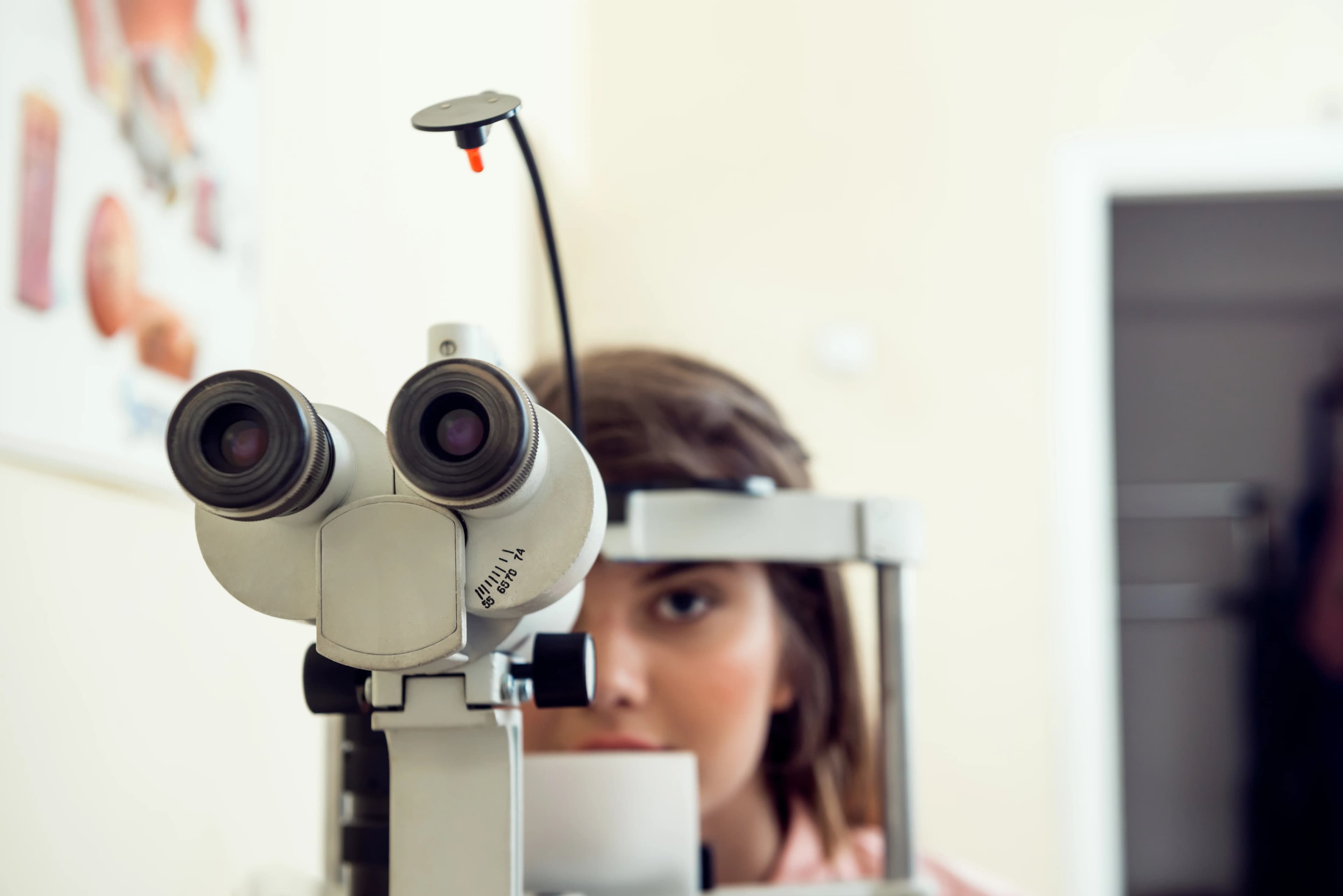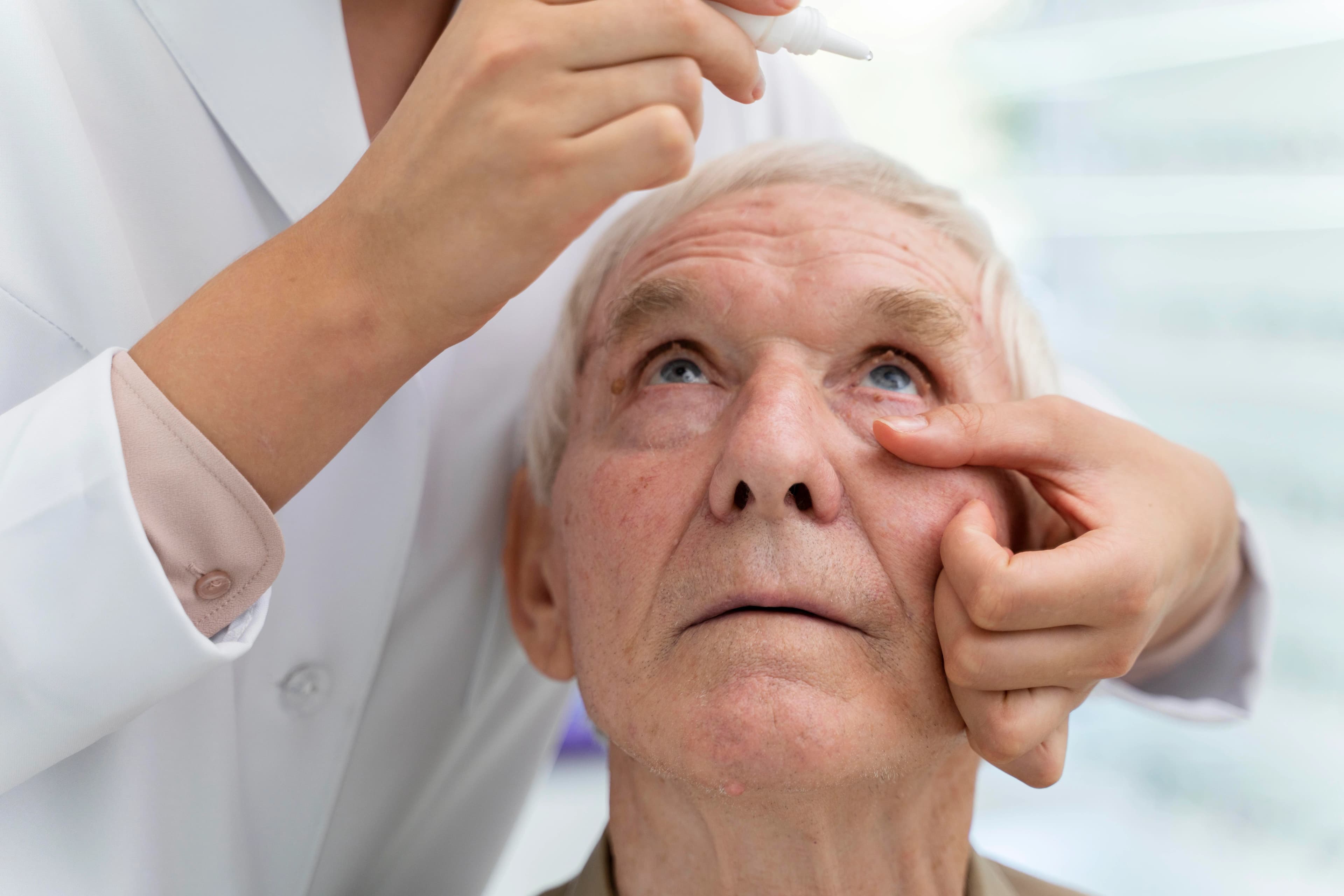Glaucoma is a group of eye conditions that damage the optic nerve, the health of which is vital for good vision. This damage is often caused by abnormally high pressure in your eye. Glaucoma is one of the leading causes of blindness for people over the age of 60. Glaucoma can happen at any age but is more common in older adults. The sad fact is, since there are close to no warning signs, you may not even notice a change in your vision until the condition is at an advanced stage.
You must have regular eye exams that include measurements of your eye pressure. Vision loss due to glaucoma is irreversible, but if recognized early, vision loss can be slowed or even prevented. In case you have this condition, you’ll need treatment for the rest of your life.
What are the symptoms of glaucoma?
The signs and symptoms of glaucoma vary depending on the type and stage of your condition. For example:
Open-angle glaucoma
Patchy blind spots in your side (peripheral) or central vision, frequently in both eyes
Tunnel vision in the advanced stages
Acute angle-closure glaucoma
Severe headache
Eye pain
Nausea and vomiting
Blurred vision
Halos around lights
Eye redness
If glaucoma is not treated, it will cause blindness. While even in those treated, 15% of those with glaucoma become blind in at least one eye within 20 years.

When to make an appointment with your ophthalmologist?
Since some forms of glaucoma can destroy vision before any signs or symptoms are apparent, you should be on the lookout for these signs, and make an appointment as soon as possible:
Having high internal eye pressure (intraocular pressure)
Being over age 60
Being black, Asian, or Hispanic
Having a family history of glaucoma
Having certain medical conditions, such as diabetes, heart disease, high blood pressure, and sickle cell anemia
Having corneas that are thin in the center
Being extremely nearsighted or farsighted
Having had an eye injury or certain types of eye surgery
Taking corticosteroid medications, especially eye drops, for a long time

What can be done to prevent glaucoma?
Here we have a few steps that can help you detect glaucoma in its early stages, which can help you prevent or slow the progression of vision loss.
Regular dilate eye exminations
Having a regular eye exam schedule can help detect glaucoma in its early stages before damage is done. You should have regular check-ups based on your age & eye condition, but as you reach 65, you should have eye exams every 1-2 years.
Knowing your family's eye health history
Glaucoma tends to run in families. If you're at increased risk, you may need more frequent screening.
Safe exercise
Regular, moderate exercise may help prevent glaucoma by reducing eye pressure.
Using prescribed eye drops regularly
Using glaucoma eyedrops can reduce the risk that high eye pressure will progress to glaucoma. For the drops to be effective, they’ll need to be used regularly even if there are no symptoms. Remember to ask your doctor for the prescription.
Wearing eye protection
Serious eye injuries can lead to glaucoma. Wearing eye protection when using any type of power tool or playing high-speed racket sports in enclosed courts can help prevent these injuries.
Conclusion
In conclusion, glaucoma is a complex eye condition primarily caused by damage to the optic nerve, often associated with increased intraocular pressure. This pressure buildup is typically due to the impaired drainage of aqueous humor, the fluid inside the eye that maintains its shape and nourishes the cornea and lens. While the exact mechanisms can vary, risk factors such as age, family history, and other medical conditions like diabetes can contribute to the development of glaucoma. Despite the challenges in prevention, early diagnosis and treatment are crucial in managing the condition and preventing further vision loss. Treatments focus on lowering the intraocular pressure through medications or surgical interventions to improve fluid drainage or decrease fluid production within the eye. Maintaining regular eye examinations can aid in the early detection and management of glaucoma, potentially preserving vision and quality of life.
Read more: